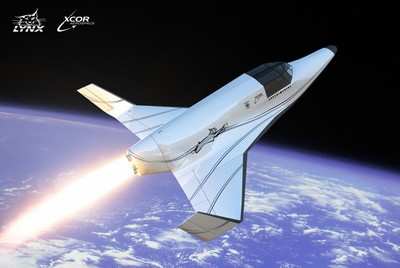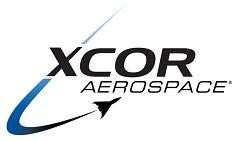Should Fund The Company Through Production Of Lynx Suborbital
Vehicle
XCOR Aerospace announced Monday that it recently closed a $5
million round of equity funding. The round, combined with cash on
hand plus anticipated and existing contracts, should fund the
company through production of its Lynx Mark I Suborbital vehicle.
The financing included participation of new and previous investors.
Among them are Esther Dyson, Pete Ricketts (co-owner of the Chicago
Cubs) and several top Silicon Valley entrepreneurs and former
venture capitalists.

"We have chosen to announce this wonderful news at the Next
Generation Suborbital Researchers Conference here in Silicon Valley
because we believe the future of commercial space access will be
driven by enterprise customers like the attendees here today," said
Andrew Nelson, XCOR's Chief Operating Officer. He added, "This
investment represents a vote of trust and confidence in the markets
represented by NSRC participants."
Jeff Greason, Founder and CEO of XCOR noted, "I believe we were
able to raise funds in these trying economic times because XCOR has
demonstrated compelling value to investors and customers. Our
$60-plus Million backlog of orders for Lynx suborbital vehicles,
flights on Lynx, and our unique reusable non-toxic rocket engines
gives the investor community reason to take notice."
As part of this financing, XCOR is also happy to announce a
reformulated Board of Directors. The directors include newcomer
Esther Dyson, former venture capitalist Stephen Fleming, Chairman
of the Space Studies Institute Dr. Lee Valentine, and company
founders Jeff Greason and Dan DeLong. Ms Dyson is well known for
her perceptive early investments in the Internet, software and
social media industries, her service on private and public
corporate boards and foundations, and for leading NASA's Technology
and Innovation Advisory Council. Mr Fleming is a former general
partner at the venture capital firm of ATV Partners and is now Vice
President at Georgia Tech where he leads the Enterprise Innovation
Institute. Dr Valentine is well known in the commercial space
community for his leadership of the Space Studies Institute and his
work with many early stage startup companies.

Work proceeds on the Lynx suborbital vehicle at XCOR. With the
recent receipt of the Lynx Mark I fuselage, the continued testing
of the liquid oxygen and kerosene propulsion system, the fielding
of the non-toxic high performance bi-propellant reaction control
system, and the recent release of request for quotes for the
cockpit pressure vessel and wing strakes, XCOR is getting ever
closer to first flight.
"While the recent and unprecedented disruptions in the capital
markets have impacted every fledgling aerospace company, XCOR has
weathered the storm and in 2011 we had our best year ever from a
revenue and profitability perspective. And while the difficulties
of the last few years have delayed the Lynx, we're excited about
the challenges ahead. There is a lot of work and sizable risk in
front of us, but XCOR continues its uncompromising commitment to
safety and excellence. We remain focused on delivering our
customers the coolest rocket plane on the planet," said Nelson.
 ANN's Daily Aero-Linx (11.25.25)
ANN's Daily Aero-Linx (11.25.25) NTSB Final Report: Glasair GlaStar
NTSB Final Report: Glasair GlaStar ANN FAQ: Turn On Post Notifications
ANN FAQ: Turn On Post Notifications Classic Aero-TV: Red Tail Project Update Taking the Mission to the People
Classic Aero-TV: Red Tail Project Update Taking the Mission to the People Airborne 11.24.25: ANN's 30th!, Starships V3 Booster Boom, Earhart Records
Airborne 11.24.25: ANN's 30th!, Starships V3 Booster Boom, Earhart Records




